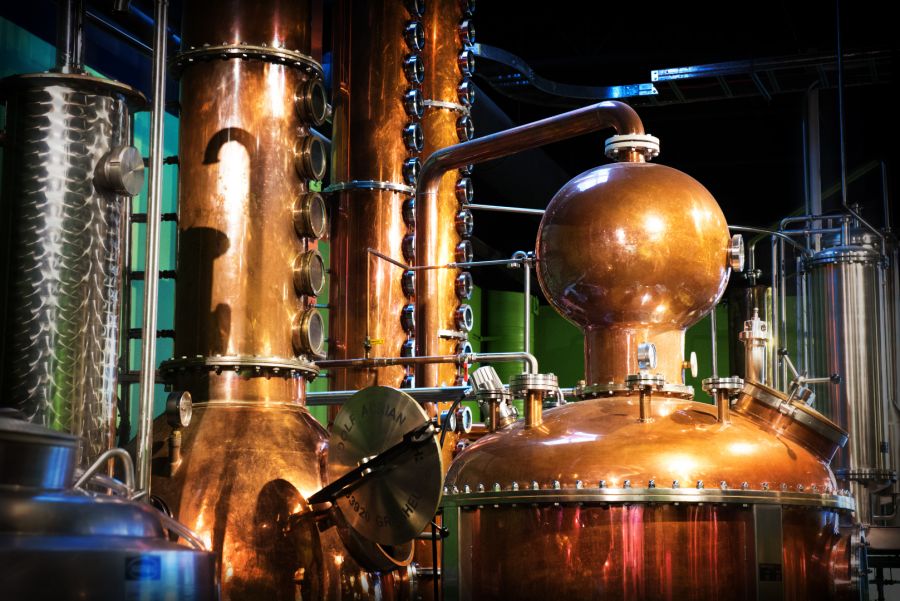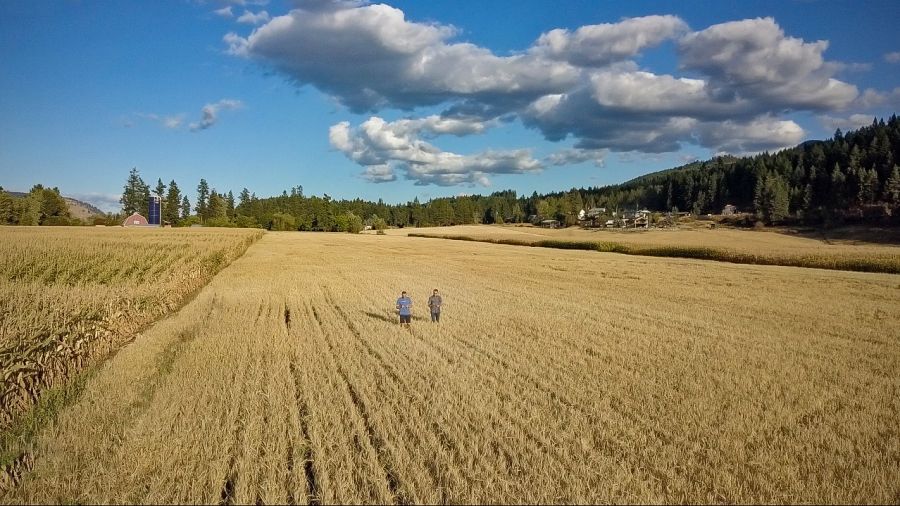Search VernonNow
**Editor's note: This article was updated to include a quote and background information from the BC Ministry of Agriculture and Food.**
Months after numerous American products were removed from the shelves of provincial liquor stores, BC craft distillers are standing on the sidelines looking to fill those empty shelves and receive the same treatment as local wineries.
"The NDP government performed a hollow political stunt months ago by pulling red-state liquor off BC shelves, which started on Feb. 1st this year," said Gavin Dew, Conservative MLA for Kelowna-Mission.
"But they've failed miserably at getting our own BC craft spirits onto those same shelves. Instead of meaningful action, we've seen nothing but delays, excuses and lost economic opportunity."

Keeping BC’s craft spirits away from provincial liquor stores are policies that see the distillers make little to no profits and production caps.
Meanwhile, BC wineries have received various supports over the past three decades, including the Vinters Quality Alliance (VQA) program, which has helped the industry bloom.
"This is a no-brainer opportunity staring us right in the face. BC craft distilleries are ready to step up – they create good jobs across the province, buy from our farmers, draw tourists to our communities, and bring in tax dollars that help everyone,” said Dew.
“But the NDP's delays and excuses are holding them back. They've had months to act on giving these folks the same fair treatment as BC wineries, like VQA-style rebates and scrapping that outdated production cap. Empty shelves mean lost money for BC and that's on the NDP."
Currently, BC craft distillers depend on selling their products directly from their storefronts, by going to farmers' markets or at private liquor stores. And when they're successful without having products in provincial stores, the distillers can be held back by the production caps.
One example of this is Okanagan Spirits, which recently won several international awards. With the recent rise in shoppers wanting to purchase Canadian products, the Okanagan distillery is creeping towards its production cap, according to Tyler Dyck, CEO of Okanagan Spirits and president of the Craft Distillers Guild of BC and the Canadian Craft Distillers Alliance.
“It's just totally insane to have a penalty for success and growth...Okanagan Spirits was (named) distillery of the year at the World Spirits Awards, so they are in the spotlight right now. Everyone wants their stuff, and the BC government is keeping shackles on them and their boots on the neck if they're not allowing them to grow," he said.
There are 85 true craft distilleries in BC, according to Dyck, and if the industry received similar treatment as the wine industry, Dyck believes it would dwarf the wine industry because of the ability to have craft distilleries all over the province, instead of being clustered in small regions.
“A craft distillery can be located anywhere, because once we grow our grains, they can be stabilized, we have to dry them first, and so they're a stable product for the rest of that year. And so that's why you see craft distilleries all over the province,” explained Dyck.
The Okanagan Spirits CEO added that it takes six times the amount of agricultural inputs to create a single bottle of spirits compared to a single bottle of wine “and so, it is an economic juggernaut for the province and it makes no sense not to unshackle that, because for farmers in the province, this is going to be the biggest gift to them ever.”

While it has been a years-long battle to see craft distilleries placed on an equal playing field as BC wineries, there has been a recent sense of excitement with the Liquor Distribution Branch being moved under the BC Ministry of Agriculture and Food’s umbrella.
“All wine makers, beer makers, cider makers and distillers in the province are super excited to see Lana Popham at the helm, because this is a chance for her to finally correct these wrongs and this total discrimination against BC craft distillers, to put them on an even playing field,” added Dyck.
“We're not asking for more than the wineries. We're just saying, treat us like the wineries and we will power the economy.”
Dyck is set to meet with the minister on Monday and would like the meeting to result in the creation of a VQA-style reimbursement program before the end of the year and the elimination of the production cap.
“With these two small changes, finally giving BC craft distillers the equitable access that they are deserved and that they qualify for, to finally give them that and treat them like the wineries…you would see BC craft spirits on the shelf,” explained Dyck.
“And if they remove the cap, then we could produce enough to stock those shelves so that we could have a presence in the BC market and be seen before BC consumers. Because, quite frankly, if you're not in government liquor stores, that's where 90% of all liquor sales happen in the province. You're just, quite honestly, not relevant if you're not there.”
When asked about the calls for the government to remove the production caps and create VQA-style rebates for craft distillers, the Ministry of Agriculture and Food said that the Liquor Distribution Branch was directed this past spring to explore ways to reduce barriers for BC manufacturers to access BC Liquor (BCL) stores.
“I have been hearing from distillers and producers about the challenges they have been facing in this market,” stated BC Agriculture Minister Lana Popham.
“The BC Liquor Distribution Branch has been directed to explore ways to reduce barriers for BC manufacturers to access shelf space and work continues, and I am committed to working with the sector to help make sure they can get their amazing BC products on shelves.”
According to the ministry, following the directive on March 10, 2025, to remove US-made products from provincial stores, BCL stores have filled those shelves by adding “215 BC and Canadian-made products to its product selection, including BC craft spirits, BC commercial spirits, BC VQA wines, crafted in BC wines and BC craft beer.”
The ministry added that BCL stores currently offer a total of 10 BC craft spirits and 16 BC commercial spirits.